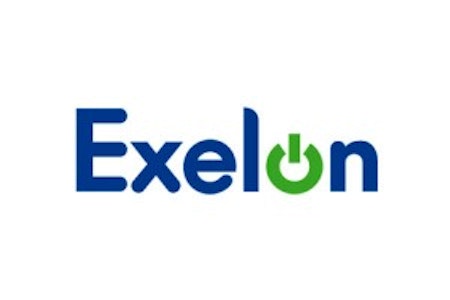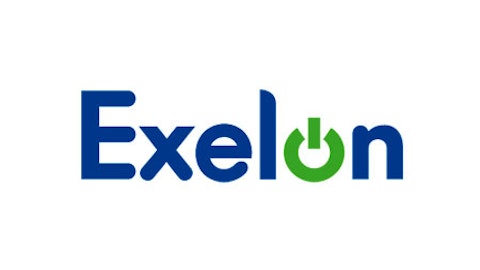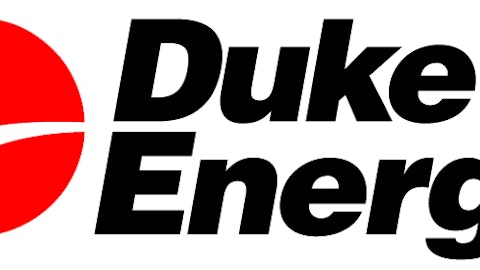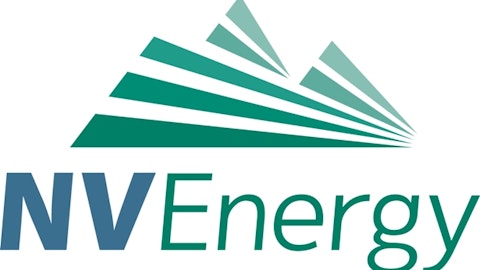Historically the companies in the utility sector have been seen as very defensive investments. Utilities typically have predictable business operations and high and sustainable dividend yields. Companies in this sector have had a very nice run since the recession. To put it into perspective, lets first look at the iShares Dow Jones U.S. Utilities ETF (NYSEMKT: IDU).
Between November 2012 until just last month, this ETF was on a tear, up more than 20% from its low of $83.28 to a high of $102.69. Since May, it has seen more than a 10% pullback and it’s currently trading at around $93 a share. With a P/E ratio of 16 and a trailing 12-month yield of 3.1%, I feel that this ETF may still be overvalued. The decreased yield also shows that the price may have run up a little bit causing investors to take some profits and move to sectors with greater income opportunities and cheaper price tags.
Does the iShares ETF represent the utility sector as a whole? Every company can’t be overvalued right? Let us look at a couple of the iShares Dow Jones Utilities ETF’s largest holdings: Exelon Corporation (NYSE:EXC) (4.6%) and Dominion Resources, Inc. (NYSE:D) (5.4%) to get a better feel for whether this sector is set to rebound or if it’s headed in a downward spiral.
Nuclear and renewable energy

Exelon Corporation (NYSE:EXC) currently trades at 13.4 time forward earnings. The company was able to post revenue growth of 29.7% for Q1 2013. Exelon has a dividend yield of 4% with a payout ratio of 178%. This elevated payout ratio means that a dividend cut could occur with even small earnings fluctuations.
One area where Exelon Corporation (NYSE:EXC) excels and distinguishes itself from other utility companies is that a bulk of its energy generation comes from sources outside of coal or natural gas. More than 50% of Exelon’s power generation comes from nuclear sources, but the company is also expanding into other energy opportunities.
Exelon Corporation (NYSE:EXC) operates 44 wind projects with close to 1,300 MW of capacity with plans to invest $80 million in smart-grid upgrades. This focus on renewable energy is important for the long-term growth potential of Exelon as the US continues to decrease its reliance on energy generated from burning fossil fuels.
Natural gas diversification
Dominion Resources, Inc. (NYSE:D), together with its subsidiaries, engages in producing and transporting energy in the United States. The company operates through three segments: Dominion Virginia Power (DVP), Dominion Generation, and Dominion Energy, primarily providing power to resident s of Virginia and North Carolina.
The company trades at 15.3 forward earnings with a price-to-sales ratio of approximately 2.4, well ahead of the industry average of 1.1. Dominion Resources, Inc. (NYSE:D) currently sports a yield of 4% with a payout ratio above 400%. Similar to Exelon, the dividend is exposed to a potential cut if earnings were to take a turn in the wrong direction.
Another area of concern for Dominion Resources, Inc. (NYSE:D) is its balance sheet. The company only carries about $0.06 cash per share with debt topping $21 billion. With a debt-to-equity ratio of 197.8 and a current ratio of just 0.7, Dominion needs to be proactive about debt management going forward.
A unique aspect of Dominion Resources, Inc. (NYSE:D)’s business comes from its energy segment. Dominion Energy is involved in natural-gas distribution and storage operations, natural-gas gathering and by-products extraction activities, natural-gas trading and marketing activities. The company operates 21,800 miles of gas-distribution pipeline as well as underground natural-gas storage systems with 947 bcf of storage capacity.
You see the natural-gas industry has been in a tremendous state of expansion since the introduction of hydraulic fracturing (commonly know as “fracking”). The ability to extract natural gas trapped within shale rock formations has significantly shifted natural gas exploration back onshore. All of this gas needs to be transported and stored and Dominion appears to be positioned well to capitalize on this expansion.
Wrap up
The theme when it comes to utility companies seems to be fairly straight forward. These companies have had a tremendous run and this recent pullback could present a nice entry opportunity. I personally do not feel that all utilities companies are overvalued.
I would be focus on the iShares Dow Jones Utility ETF right now as I feel in an industry like this, the ETF presents you with much-needed diversification. There is one thing we know for sure about utility companies: they pay great dividends. Stick with the ETF. Avoid the pitfalls of some of the potentially overvalued companies in this space, stay diversified, and let those dividends compound for years to come.
Daniel Paterson has no position in any stocks mentioned. The Motley Fool recommends Dominion Resources and Exelon.
The article Is There Any ‘Juice’ Left in Utilities? originally appeared on Fool.com and is written by Daniel Paterson.
Daniel is a member of The Motley Fool Blog Network — entries represent the personal opinion of the blogger and are not formally edited.
Copyright © 1995 – 2013 The Motley Fool, LLC. All rights reserved. The Motley Fool has a disclosure policy.




